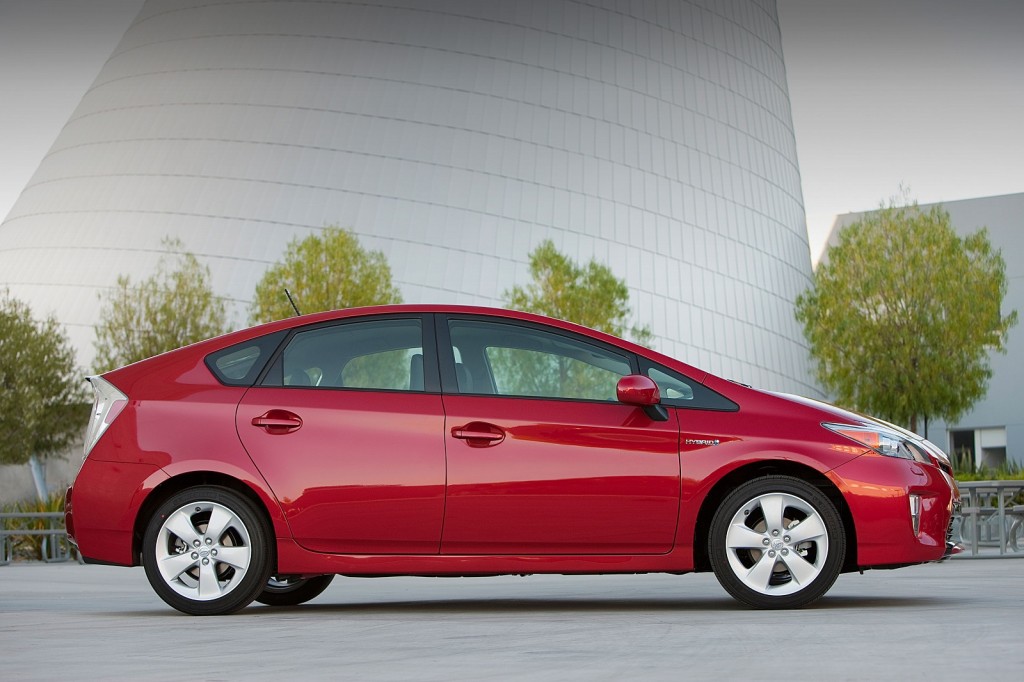The rise of modern plug-in electric cars and more-efficient internal-combustion vehicles are two results of legislation aimed at limiting the environmental impact of transportation.
More fuel-efficient gasoline cars help lower greenhouse-emissions, but are they also lowering the sales of plug-ins, hybrids, and other alternative-fuel vehicles?
That's the argument made in a new report from research firm Experian Automotive. It claims sales of those alternative-fuel vehicles have "hit a wall."
ALSO SEE: Gas-Mileage Average For March Vehicle Sales: 25.4 MPG, An All-Time High
Researchers point to a 3.6-percent decrease in sales of "alternative-powered vehicles" in the first half of this year, and claim this is the first time sales have gone down since the dawn of the modern electric car in 2009.
It's worth noting that sales of plug-in electric cars are rising, but from a very small base.

2015 Toyota Prius Liftback
After all, the "green" most car buyers are interested in is in their wallets. For those just looking to save money on fuel, just buying a more-efficient gasoline car is sometimes preferable to amortizing the extra cost of a hybrid or battery-electric car over several years.
The report also indicates buyers are switching to more-efficient categories of vehicles, rather than switching from gasoline to another energy source.
MORE: SUVs And Crossover Utility Vehicles Now Outsell Sedans In U.S.
Full-size pickup trucks typically dominate new-vehicle sales, but researchers found that small crossovers have taken over the top spot (in in terms of registrations, at least), followed by small economy cars.
Fuel economy is steadily improving across all market segments as carmakers work to meet stricter Corporate Average Fuel Economy (CAFE) standards.
The current rules call for a fleet average of 54.5 mpg by 2025, or the equivalent of roughly 42 mpg on the window sticker.
_______________________________________________












